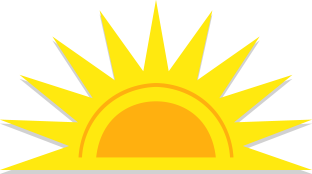Implementation
Geography determines our learning in Autumn, where we ensure children are equipped with the right knowledge to move them forward through school. A child’s journey begins in EYFS, looking at a child’s place in the world and what makes each of them unique and special. By the end of Key Stage 1, children know where their house is, what their street is called and that Mitcham is a town southwest of the City of London. They begin to compare where they live with the geography of other countries and continents. By the end of Lower Key stage 2, children use this knowledge to broaden their ideas on what it takes to be part of a town, what communities are and how they can be a force for good, both here and abroad. Throughout KS2, children know that communities have been around for many thousands of years, and we begin to look at historical settlements in the local area before moving on to thinking about the changes our communities have seen and will continue to see in the years to come. Subjects such as Art underpin our curriculum design by ensuring children explore drawing, painting, sculpture and printing. As we are ambitious for our children, we also try to include other elements such as performance. This is linked to our work in Humanities by looking at artists who have their roots in our local community (William Morris; printing) or that enhance their knowledge of design (Paul Klee Houses and homes Y1). Each art project builds and prepares for the next. Community activism and social justice are themes explored in great detail in Year 6 Autumn as a culmination of work about people, their communities and their journey to Mitcham. We make links in English with a look at our own journeys – valuing our children’s own experiences. Children are then well-prepared to look at the idea of responsibility, democracy, being heard and, ultimately, what happens when voices are prevented from being heard.
In Spring, the school collectively takes on an ‘Inspired by…’ topic, be it well known individuals of the past or those that are current and play a part in our local area now. The subject driver here is predominately History but we continue to make links through DT, Geography and Science where we identify purposeful learning opportunities.
By summer, enrichment opportunities like our Edible Garden enhance learning in Science and we continue to bring learning to life with a whole school ‘Carnival’ which gives all the children a public forum for their work- a thread we are developing across the curriculum; because children need purpose in whatever they do. Teachers use a range of principles to ensure learning sticks; targeted feedback & questioning, dual coding to commit to memory, independent and guided practice to ‘overlearn’.
